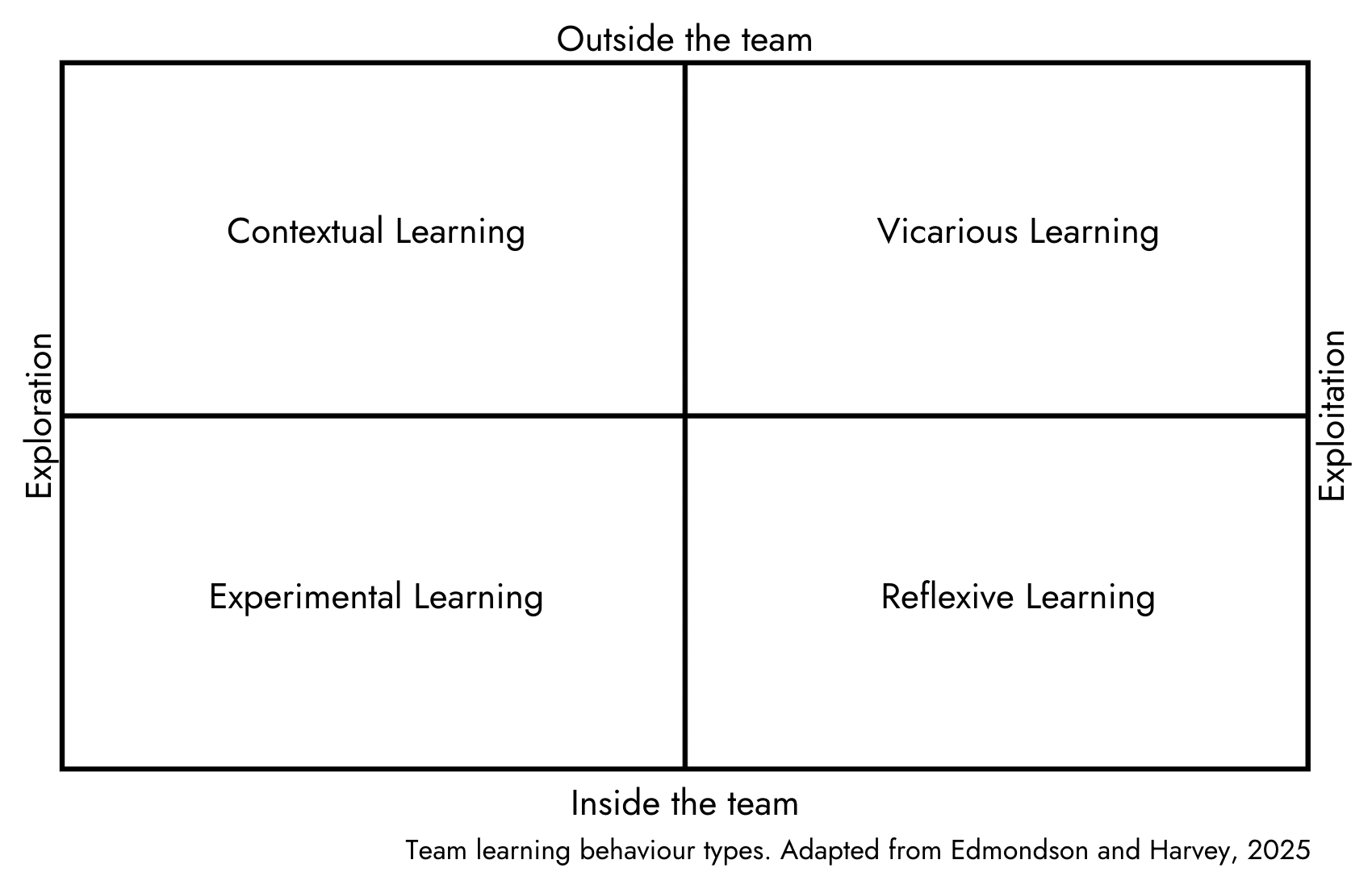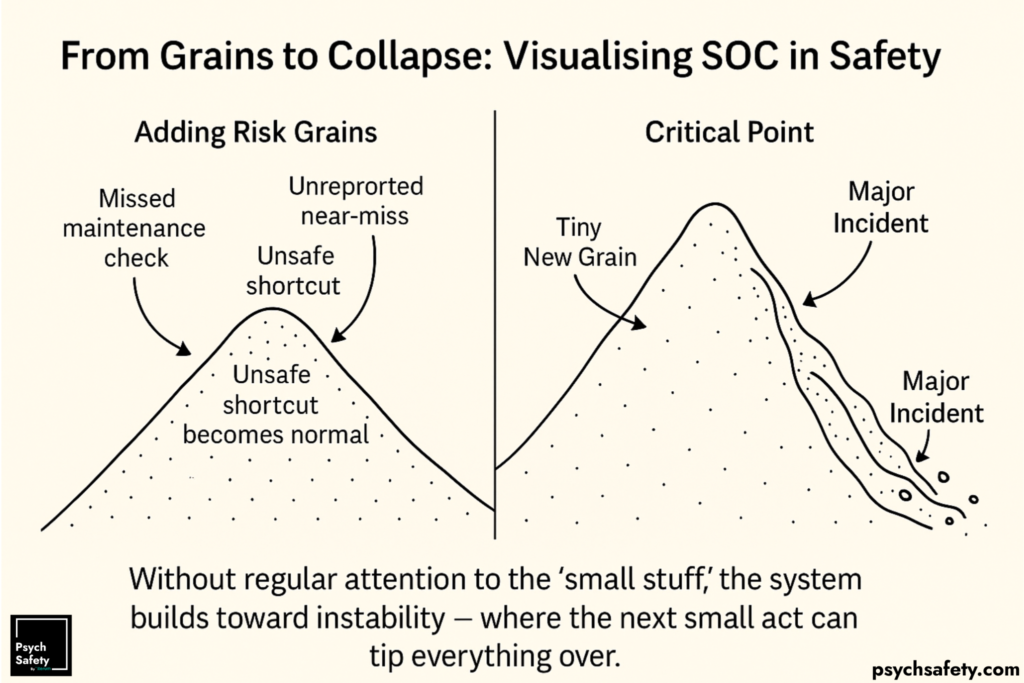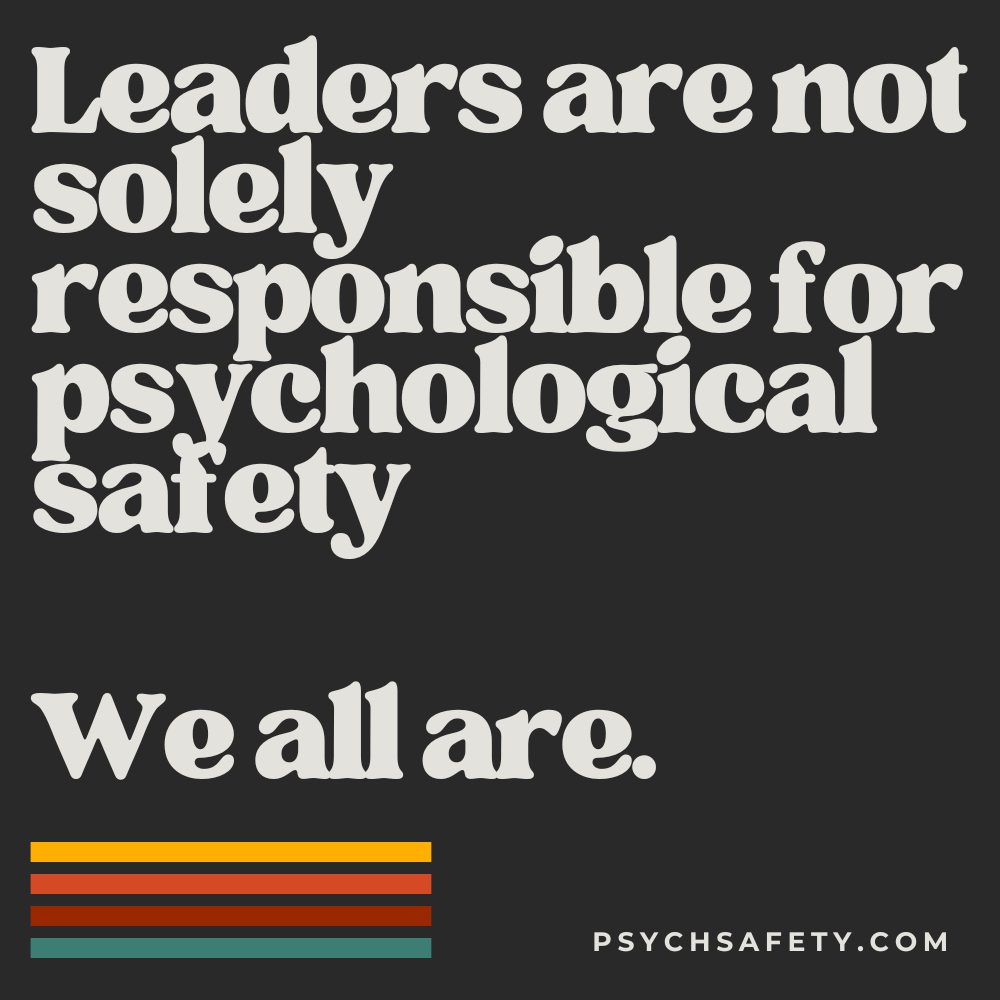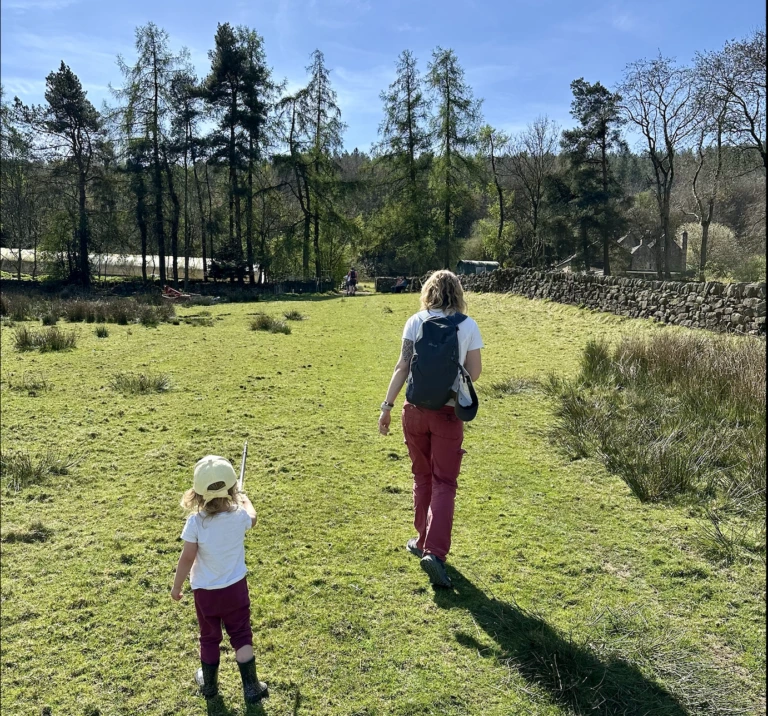Psychological Safety in Practice
Team Learning in the Field: An Organizing Framework and Avenues for Future Research
This excellent paper from Amy Edmondson and Jean-François Harvey affirms that teams learn most effectively when members feel safe to speak up, take interpersonal risks, and constructively challenge each other’s ideas; core elements of psychological safety. It highlights how open dialogue and candid reflection are essential for all four types of learning behaviours they identify (reflexive, experimental, vicarious, and contextual). When team members do not fear blame or ridicule, they are more likely to share mistakes during reflexive discussions, run bold tests in experimental settings, reach out to others for vicarious insights, and scan beyond their boundaries for contextual knowledge.

The Bite-Size Leadership Podcast
I really enjoyed recording this podcast with Dunke (one of our Psych Safety alumni!), and it was so nice to be able to dive deeply into some of these topics in a relaxed and conversational way, including diversity and neurodiversity in psychological safety. Listen to this and other episodes here!

Toxic leadership: when culture sabotages clinical excellence
This is a great paper by Britta S von Ungern-Sternberg and Karin Becke-Jakob, about toxic leadership in medicine, exploring what contributes to toxic leadership, including strict hierarchies, high stress and high pressure environments. Worth a read (it’s free to access), and I particularly like this point, which is one we make very often!
“Without proper training in leadership, they may fall back on psychopathological behaviour patterns or on what they have learned and experienced during their junior years and unintentionally adopt harmful practices.”
Thanks to Dan Harley in the psychological safety community for the share.
Icebreakers
At their best, icebreakers can be an effective tool to increase the psychological safety of a team or space, especially if the people present haven’t yet met or don’t know each other well. Primarily, they help to create a more “known” collaborative space – where we know who’s present in the room (virtual or otherwise). It’s difficult to feel psychologically safe if we don’t know who’s in the group with us.
We first wrote a piece for the newsletter nearly a year ago now on icebreakers, recognising that while well-intentioned, icebreakers sometimes do more harm than good when it comes to creating an inclusive, welcoming space. It’s proven to be a really useful resource, so we’ve updated it drawing on our latest experiences facilitating workshops both in person and online and also drawing on the insights and experiences of people in the Psych Safety community.
We’ve elaborated on the what, why and how of icebreakers, and we’ve also clarified the characteristics of great icebreakers: Generally speaking, the best icebreakers are:
- Accessible and inclusive – we want there to be a very low bar to engagement
- Enjoyable – let’s not put people off from the start!
- Aligned with the tone of the session – the icebreaker should feel appropriate to the topic and mood
- Concise – we don’t need them to dominate the whole session
You can read the updated piece in full here: https://psychsafety.com/icebreakers/
And we’d love to hear from you – what icebreakers do you love (or loath)? We’d like even more examples to add to our list – it’s our way of doing our bit towards making icebreakers less terrifying for all involved!
Further reading:
Reducing Power Gradients
Psychological Safety in Remote and Virtual Teams
Speaking up at work
Non-Violent Communication
The Chatham House Rule
A team is only as safe as the least safe person
The Pac-Man Rule

Open Enrolment Online Workshops
Booking now for 10th – 27th March 2025
Looking to deepen your expertise in psychological safety—whether for your team, your organisation, or your own practice? Our flagship Complete Psychological Safety Course: Train the Trainer is designed for leaders, trainers, and consultants who want to create safer, more effective workplaces.
This flexible programme consists of six interactive 2.5-hour online workshops, each offering a different lens on how to understand, foster, build, maintain, and measure psychological safety—as well as how to inspire others to do the same. You can join individual sessions relevant to your role or take the full programme to gain a comprehensive Train the Trainer package.
Whether you’re:
- A leader or manager looking to foster a high-performing, open culture in your organisation,
- A team member wanting to integrate psychological safety into all aspects of your work
- An internal trainer or facilitator developing teams and embedding psychological safety across your workplace, or
- An independent coach or consultant wanting to deliver psychological safety training for your own clients,
… this programme gives you the practical tools, expert guidance, and real-world applications to make an impact.
Secure your spot today and start building psychologically safer, more inclusive spaces for meaningful work.
All our workshops provide certificated CPD hours and Credly badges to evidence your professional development.
Covering the four key archetypes of organisational change, originally covered in this 2021 article: psychological safety at scale.
The post Newsletter 201: Learning Types and Toxic Leadership appeared first on Psych Safety.





